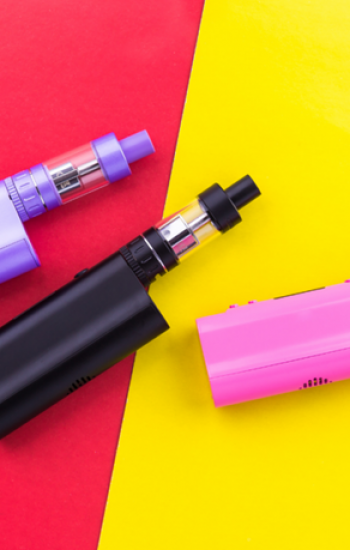Do you know what e-cigarettes are? Do you know how e-cigarettes and vaping can affect a person using them? As a parent or caregiver, it is always important to communicate with teenagers about substances, such as cigarettes, e-cigarettes, and other drugs; and their potential harms. Here are some facts that could be helpful for you to know as a parent or care giver of a teenager.
What is an E-cigratte? What is Vaping?
The Alcohol and Drug Foundation refers to Vaping as the use of an electronic device (e-cigarette) to heat liquids and produce a vapor, which is then inhaled – mimicking the act of smoking.
The following substances can be in e-cigarettes:
- Nicotine (which is the main psychoactive drug in tobacco products).
- The ‘e-liquid’ which contain a range of unregulated chemicals, and additives such as sweeteners, flavours, alcohol.
- Other drugs e.g. THC (cannabis).
What is in an e-cigarette depends on the manufacturer and can vary.
What Does an E-cigarette Look Like?
E-cigarette devices can be a variety of shapes, sizes and styles. They may be shaped and coloured to make them look like traditional cigarettes or other tobacco products like cigars, pipes, hookahs, shishas, and sometimes they look like everyday items such as pens or USB memory sticks. Companies who sell them do a lot of work on making them look attractive so that people can buy them.

What you Need to Know about Vaping/E-cigarettes as a parent
The Alcohol and Drug Foundation reports of concerning trends in a number of countries showing increasing use of e-cigarettes amongst adolescents. Even though the purchase of e-cigarettes in NSW is not legal for under 18s, there appears to be increasing useage by teenagers. There may be an in initial attraction to e-cigarettes, as they are made to look attractive by companies with enticing colours & flavours, they may be cheaper to purchase than cigarettes, and peers may influence teenagers. This makes it more important to communicate the associated risks with teenagers.
Unlike traditional cigarettes, e-cigarettes have not been around long enough for us to know more about long term side effects. Presenting the information we do know about vaping to your teenager is really important, so they are of aware of the risks vaping may have on their health.
Short Term Side Effects of Vaping
- Bad breath
- Dizziness
- Feeling alert
- Rapid heart rate
- Feeling relaxed
- Headache
- Reduced appetite
- Vomiting
Long Term Side Effects and Potential Harms of Vaping
- NSW Health reports that e-cigarettes may expose users and bystanders to chemicals & toxins that are harmful to health.
- The Australian Chief Medical Officer and all state and territory Chief Health Officers have issued a statement on the emerging link between e-cigarette use and severe lung disease. There have also severe cases of lung disease, which have led to deaths overseas.
- Research reports show that young people who smoke e-cigarettes are more likely to smoke cigarettes in the future.
Harmful Effects of Nicotine
It is very important to talk to your teenager about the effects nicotine has on the body:
- Nicotine can slow brain development in teenagers and affect memory,
concentration, learning, self-control, attention and mood. - Nicotine is highly addictive and can cause someone to crave more, and
suffer withdrawal symptoms if they ignore the craving. - Nicotine is a toxic substance. It can lead to heart problems, breathing problems and cancers.
- Vaping and nicotine can increase the risk of other types of addictions.
Do E-cigarettes Help People Stop Smoking?
There is currently no evidence to support the use of e-cigarettes as an effective form of smoking cessation, and for this reason the Therapeutic Goods Administration (TGA) have not approved e-cigarettes as a quit tool. NSW Health does NOT endorse the use of e-cigarettes as a strategy to quit smoking because of the associated risks. Government approved strategies to quit smoking are available, in consultation with a doctor.
Some research points to a potential rise in smoking rates by re-normalising smoking with the use of e-cigarettes, reducing a smoker’s motivation to quit or indirectly encouraging non-smokers to take up the habit.
Talking to your Teenager about Vaping

Now that you have the facts you can try to open up a conversation with your teenager about it. If you find out that they are vaping, try to explore why your teenager is vaping. It could be to help manage anxiety, relieve stress, distract from unpleasant emotions, or connect socially with peers. Being curious about the reasons can help them feel less judged so they can open up to you. It may also give you a window into your teenager’s underlying struggles, help them develop insight into their own behaviour, and point to problems that may need professional support. These conversations may be challenging for a parent to have with a teenager, of course, and some young people have limited understanding as to why they use substances.
Do you or your Teenager Need a Safe Space to Talk about Vaping?
We are here to help! 2Connect Youth & Community offer free support to teenagers and their families. We have youth workers who specialise in talking with parents and teenagers about drugs and alcohol. We provide practical and emotional support (case management and counselling) for youth and families in South East Sydney (for families in other areas, you can access the services below). If you or your teenager would like to talk to a professional about vaping, give us a call on 95561769.
Other Useful Tips, Resources and Contacts
- For more information about e-cigarettes visit: NSW Health and the Alcohol and Drug Foundation.
- Talk to your teenager’s year advisor or school counsellor.
- Use evidence-based sources of information, such as Australian Drug Foundation (ADF), & NSW Health, for the most accurate information. You can call ADF on 1300 85 85 84.
- Talk to your family doctor for information and support.
- Phone the 24 hour Alcohol Drug Information Line on 1800 250 015.
The information here has been compiled from the evidence based sources of NSW Health & Alcohol and Drug Foundation

